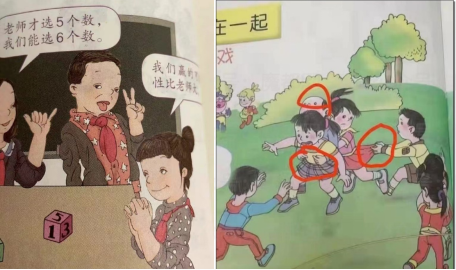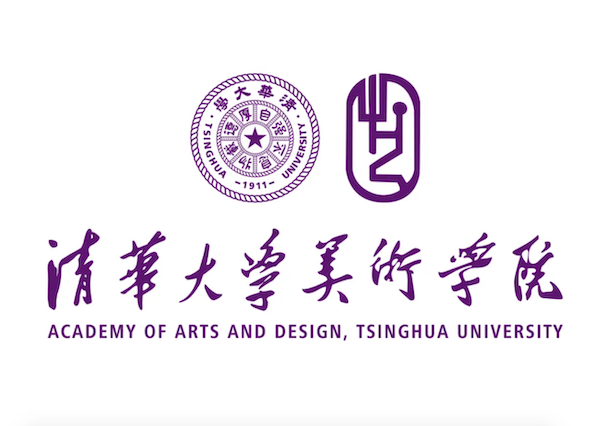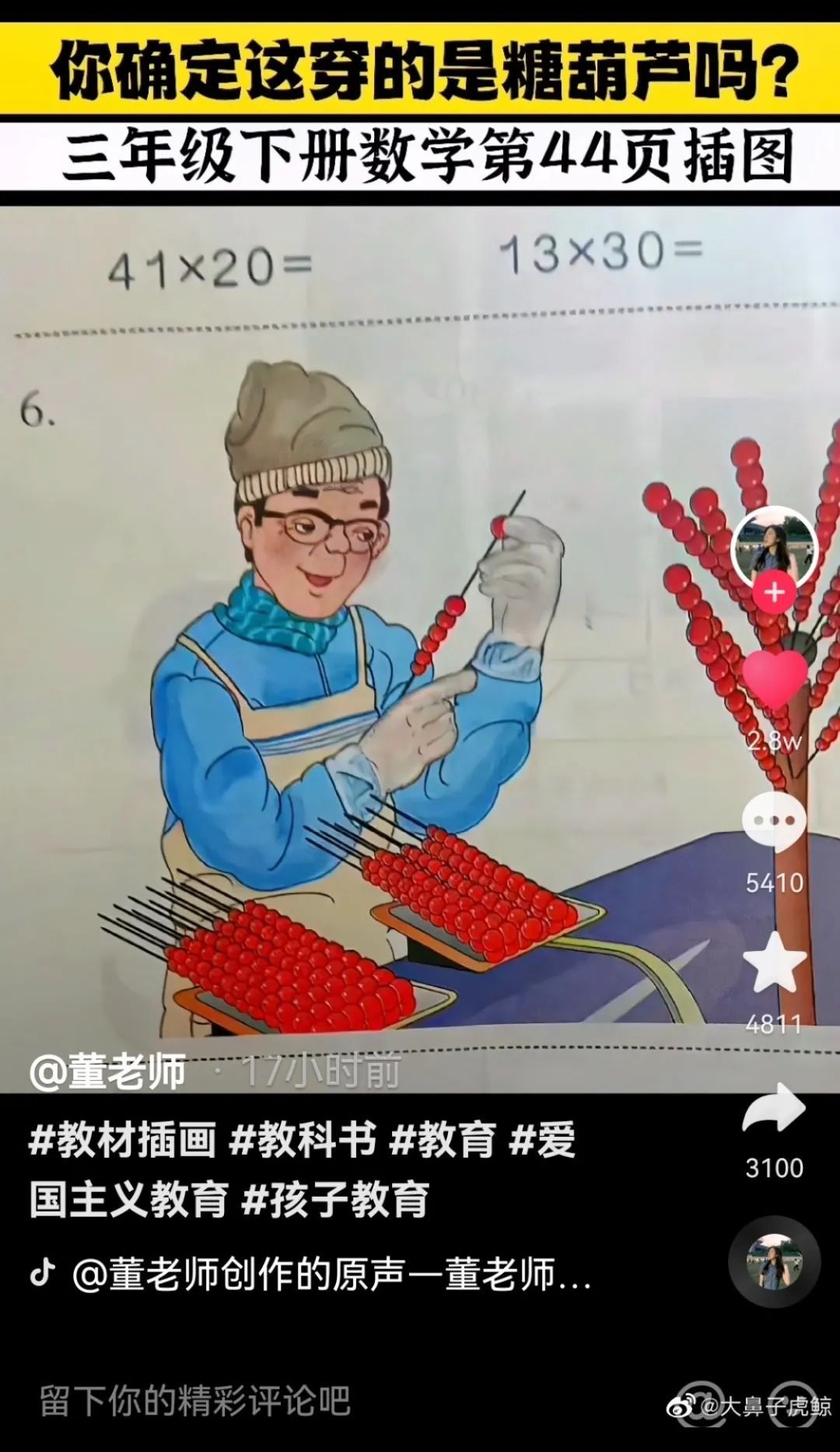China is set to investigate school textbooks after illustrations deemed to be sexually suggestive or politically inappropriate caused an uproar on social media.
On Monday, the Chinese Ministry of Education ordered a nationwide investigation into textbooks at all educational levels after a spate of social media complaints about illustrations in elementary school math textbooks. Illustrations portraying children with wide foreheads, droopy eyes, and tongues lolling out of their mouths were criticized by some as being “pathological” and “racist.” Others took issue with illustrations depicting a girl with what appears to be a leg tattoo, boys in bulging pants, and clothing elements believed to resemble the American flag.

Left: An illustration of children that some have criticized as “pathological” and “racist.”
Right: An illustration that appears to show boys groping female classmates on a playground.
Left: An illustration containing clothing elements that ostensibly resemble the American flag.
Right: An illustration of a girl with what some have claimed is a leg tattoo.
The textbooks in question are published by the state-owned People’s Education Press and have been in use for nearly a decade. It remains unclear why the drawings evaded scrutiny until some Weibo users highlighted them last week, prompting outrage among social media users, parents, and educators.
The illustrations have been attributed to Beijing-based artist Wu Yong, who has made no public statement regarding the controversy. Wu’s alma mater, a renowned art school that has since been incorporated into Tsinghua University, is also under fire from nationalists. The academy’s emblem has been described by some as a kneeling man holding up a fork, and interpreted as a veiled tribute to Western ideology, in the guise of Western cutlery.

The emblem on the upper right was flagged by some internet users as being secretly pro-Western.
One unlikely victim of the uproar is ultranationalist influencer Fu Yu, better known under his pen name Wuheqilin. An illustrator himself, Wuheqilin has been criticized for “whitewashing” the problematic drawings after he urged followers not to politicize the discussion:
I’ve seen many people comparing illustrations in textbooks from twenty years ago to those that are used today. Some even raised the topic of aesthetic and cultural decline. But I believe most issues should be discussed on their own merits, not elevated [to the level of politics].
The differences, in my opinion, are likely a result of market forces. Over the past few decades, the industry has developed, the economy has expanded, and illustrators are charging much higher rates than before. Yet the mindset of publishers, and the rates they pay illustrators, have not kept pace with the times. [Chinese]
Many of Wuheqilin’s fans, however, were unconvinced by his arguments and disappointed in him personally, as reflected by this comment archived and translated by CDT editors:
(No more excuses, please. The Ministry of Education has been so infiltrated, it’s like a sieve. [The characters in that illustration] look like they have Down Syndrome, and the clothes they wear have elements from the American flag. The intention here is simply evil!) [Chinese]
In China, state-owned publishers have a near monopoly over textbook publication. The bidding process for textbook illustrations is often opaque and the pay low, which deters well-regarded illustrators from the field, as reported by Sanlian Lifeweek Magazine:
To outsiders, the process of textbook publication has become a black box. “People responsible for the process often serve as ‘both players and referees,’” [says Jiang Chu, an art publisher].
[…] According to [independent illustrator] Li Bin, illustrations for children’s storybooks, textbooks and tutoring supplements have always been priced at the lowest level. Compensation for illustrators has remained stagnant for over a decade, with the lowest pay hovering just over ten yuan [$1.50 U.S. dollars] per illustration. […] Well-regarded illustrators often gravitate toward more lucrative work in video game production, advertising, or animation. [Chinese]
As anger spread online and more textbooks were flagged for “inappropriate” content, some netizens cautioned against a political witch hunt, as noted by WeChat blogger 中式没品笑话百科 (WeChat ID: donkeymeipin) in two separate essays:
Some people are simply letting their imaginations run wild, as shown below:[Chinese]

A drawing allegedly found in another textbook depicts a man making a sugar-coated hawthorn stick, a popular dessert in northern China. Some internet users suggest that the man’s gesture suggests that he is holding a gun.
Wuheqilin might also be wondering: why are you all making such a big deal out of some ugly paintings? Why are you criticizing me? Am I not part of the team anymore?
[…] But as we all know, if you play with fire, you will get burned. Mr. Wuheqilin should think about this: who created this environment in which people have stopped evaluating issues on their own merits? Who made the rules that push every discussion to the level of ideological principle? [Chinese]
Others noted the unique struggles of visual artists in a hyper-politicized society. WeChat blogger 海边的西塞罗 (WeChat ID: cicero2020) wrote:
As a form of pure visual art and by its very nature, painting has various meanings and is open to interpretation by viewers.
Therefore, in a hypersensitive society, any carelessness or lack of skill can make a painter’s work seem deficient, excessive, or otherwise “inappropriate,” thus completely ruining the painter’s reputation.
I once interviewed an older illustrator when I was a journalist. He said that during a certain period of history, what he most feared was being assigned to paint “The Great Leader” [Chairman Mao]. Whenever he received such an assignment (of which there were many), he’d become wracked with anxiety and unable to sleep for days.
That’s because he knew that if one mistake was made in the painting, and was picked up by the “revolutionary masses” after publication, he would be as good as dead. [Chinese]
Some netizens who criticized the children’s textbook illustrations compared the odd-looking characters to people with Down Syndrome, prompting others to speak up against ableism and to call for inclusiveness. One Weibo user wrote:
I hope those so-called “conscientious” Big Vs aren’t seeking to boost their own righteousness by vilely slandering people with Down Syndrome! If you are uneducated about children with Down Syndrome, please refrain from hurting underprivileged, innocent people with your “sword of justice!” Do you know about Down Syndrome? You are hurting the innocent for the sake of your web traffic. You are hurting the families of people with Down Syndrome without realizing it! [Chinese]
ALSOLIFE, an organization that supports children and adults with autism, also urged people to stop using discriminatory language:
Regarding the aesthetics of the textbook illustrations, we urge people to shift focus back to the issue itself. Stop using and popularizing phrases like “Down Syndrome-style.” Do not make it even more difficult for people with mental disabilities to be accepted [by society].
For many years, in the pursuit of equality, respect and inclusiveness, people with mental disabilities including Down Syndrome have sought to speak up through various means and platforms. The words that we see today, however, remind us that there is a long road ahead, and a lot of work still to be done. [Chinese]
source https://chinadigitaltimes.net/2022/06/lessons-to-be-drawn-from-chinas-textbook-controversy/
No comments:
Post a Comment